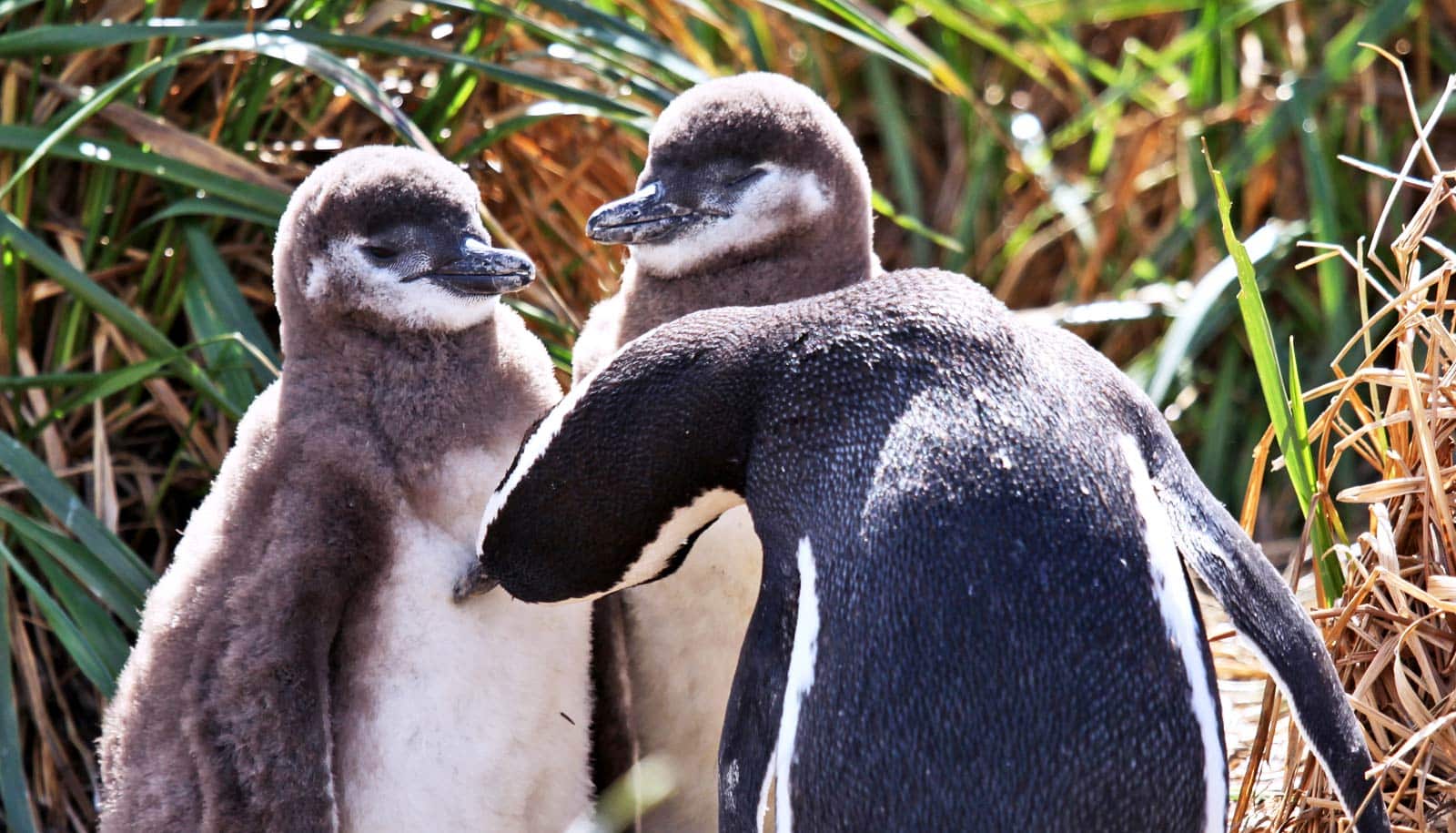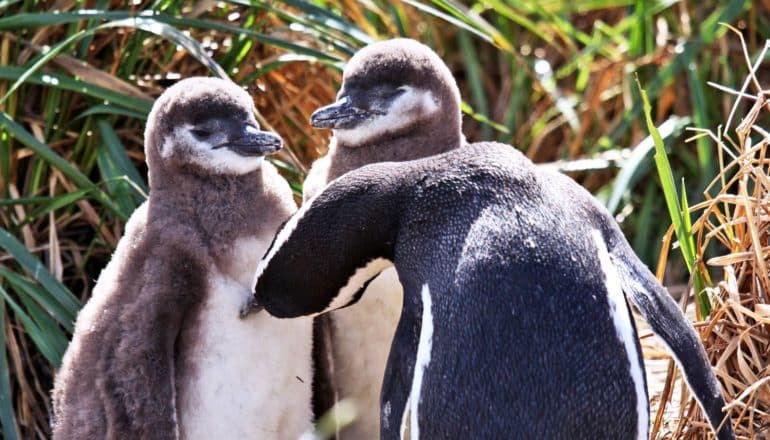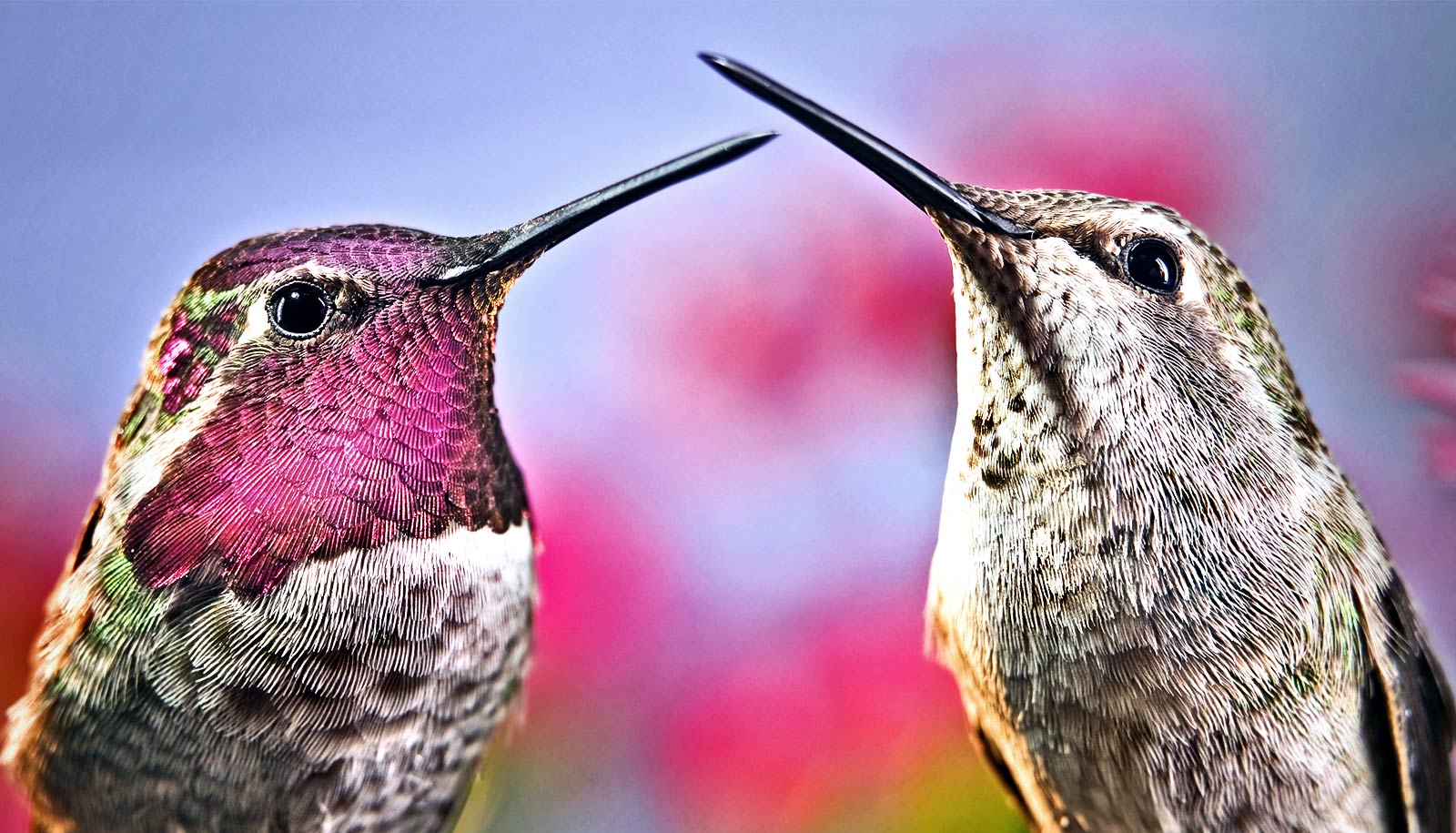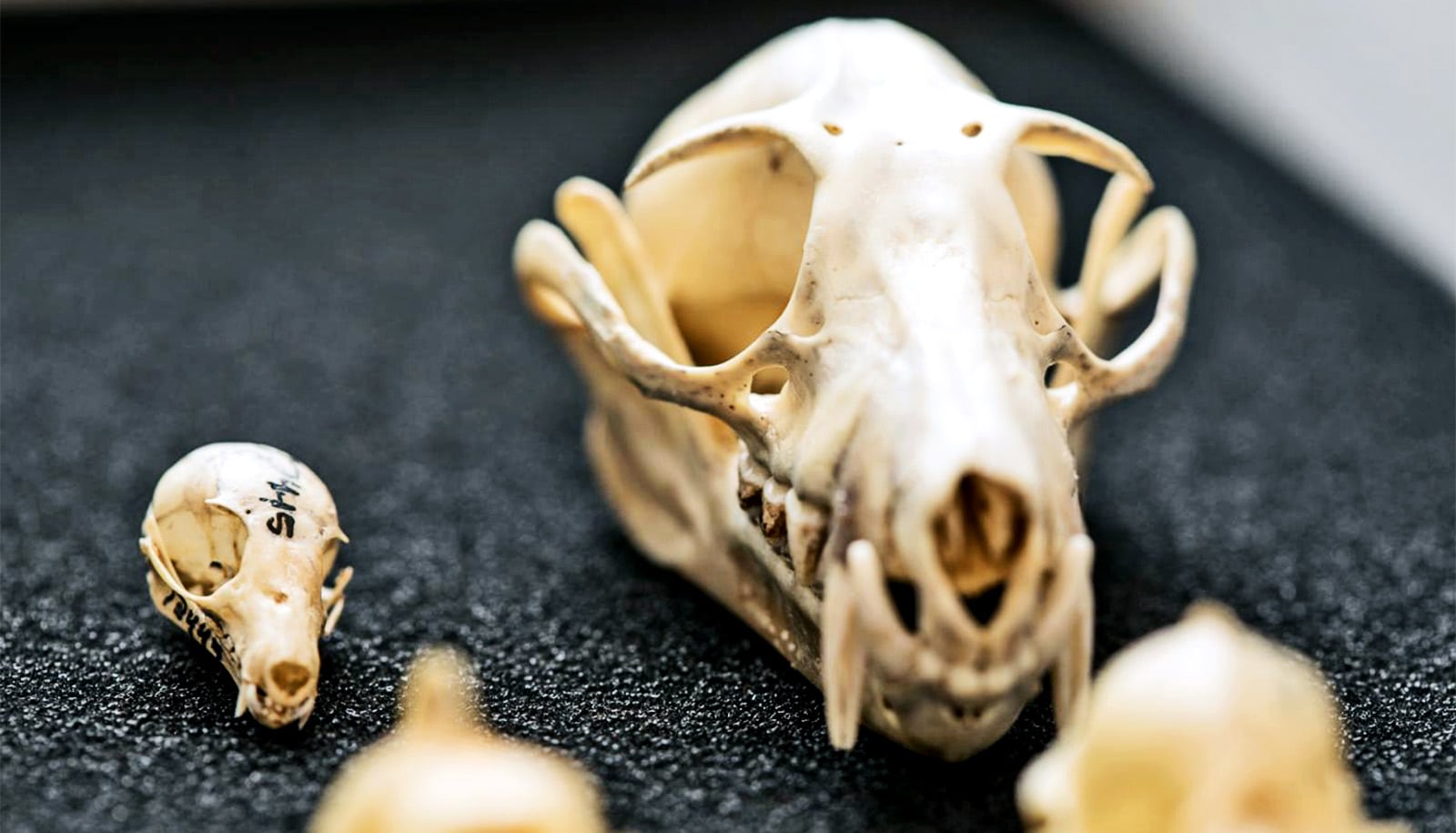
(Credit: Liam Quinn/Flickr )
These penguin parents are weirdly fair
Magellanic penguins may win the prize for best parents. When feeding their brood, they try to feed each chick an equal portion, regardless of age or size.

Magellanic penguins feed their brood in a surprising way: Each chick gets an equal portion, regardless of age or size.
The finding is different from other parents across the animal kingdom, including other penguin species, that often allocate resources unequally to their chicks based on factors like offspring age, body condition, health, and behavior, researchers say.
“This is an exciting finding because, among animals, it is very unusual for parents to divide food equally among their offspring,” says P. Dee Boersma, a professor of biology at the University of Washington and director of the Center for Ecosystem Sentinels. “This makes Magellanic penguin parents stand out not just among penguins, but also animals in general.”
Dinner time
Magellanic chicks are the same size when they hatch, but eggs within a nest hatch at different times. After mating, a female lays two eggs about four days apart. One chick typically hatches at least two days before the other. Chicks grow to different sizes based on the timing of their first feedings.
By the time both chicks are at least 20 days old, one chick is on average 22 percent heavier than its sibling, researchers say. Yet despite these size differences, when Magellanic chicks are older and more mobile, parents still feed both chicks equally as well as rapidly.
“These findings raise some very interesting evolutionary questions about how and why this behavior—feeding chicks equally—arose,” Boersma says.
Parents with two chicks manage this equal division despite the rushed choreography of mealtimes, researchers say. Feedings lasted just 21 minutes on average, during which the parent used its flippers to keep one chick to its left and one to its right—turning its head to feed one and then the other.
Light and heavy chicks begged a similar number of times and each switched sides five or six times during the feeding, yet siblings didn’t act aggressively toward one other. Parents directed more non-feeding behaviors—such as opening its mouth but not regurgitating any food—to the lighter chick. Yet ultimately the lighter chick still received the same amount of food as its sibling.
Feed me now
The findings shed light on when, where, and how animals decide whether to treat their offspring equally or give preferential attention to one.
For Magellanic penguins, food supply, digestion, and the time between feedings could affect this behavior.
In other penguin species, food supply impacts feeding behaviors. Adélie penguins, for example, have a relatively stable and abundant food supply because long daylight hours in Antarctic summers allow them to feed around the clock. Adélie parents run from their chicks, and the chick that follows its parent the longest is typically fed the most.
For Magellanic penguins, food is less plentiful, and chicks typically wait three to five days between feedings. Each year, about 40 percent of chicks die at Punta Tombo due to starvation, and research indicates that a chick is most at risk of starvation when it is between 5 and 9 days old. Magellanic parents feed chicks as soon as they arrive at the nest because food that digests too long in their stomachs is less nutritious for their babies.
These factors may pressure adults to feed chicks quickly and equally. In addition, chicks may avoid direct competition because that could delay the feeding. Further, the chicks’ age might also explain the findings, Boersma says.
“This behavior may have evolved because, once both chicks reach this age, it may be advantageous for the parents to try to raise both of their chicks to fledging—the stage at which chicks leave the nest—rather than preferentially giving one more resources than the other,” she says.
Eric Wagner, who worked on the project as part of his biology doctoral degree, is lead author of the paper in Animal Behaviour.
The Chase Foundation, the Cunningham Foundation, the CGMK Foundation, the Offield Family Foundation, the Peach Foundation, the Thorne Foundation, the University of Washington Wadsworth Endowed Chair in Conservation Science, and Friends of the Penguins funded the work.
Source: University of Washington
The post These penguin parents are weirdly fair appeared first on Futurity.
Share this article:
This article uses material from the Futurity article, and is licenced under a CC BY-SA 4.0 International License. Images, videos and audio are available under their respective licenses.


